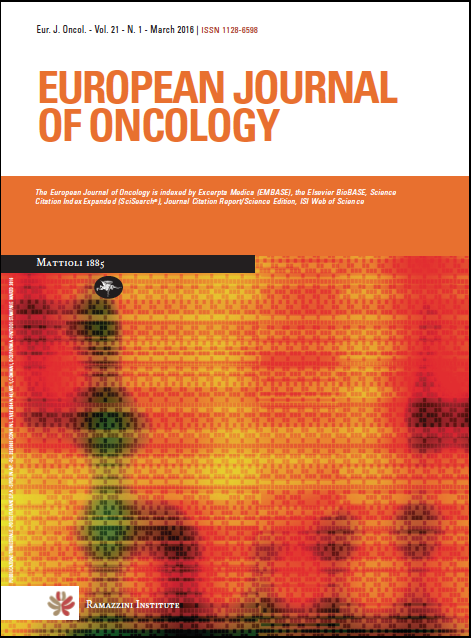Gene expression profiling of mammary glands at an early stage of DMBA-induced carcinogenesis in the female Sprague-Dawley rat
Keywords:
DMBA, Gene Expression Profiling, mammary carcinogenesis, early events, Sprague-Dawley rats, in vivo models.Abstract
Background: Breast cancer is the most common cause of cancer death among women worldwide and the second leading cause of tumor-related death for women in westernized countries. Most research efforts to find a breast cancer biomarker have been focused on the stage after the cancer is diagnosed. To investigate more deeply into mammary cancer prevention, a study of precancerous lesion development seems a priority. Experimentally-induced mammary tumors in rats constitute a powerful tool for studying the pathogenesis of this cancer and the molecular mechanisms involved in neoplastic progression. Furthermore, in vivo experimental animal models provide information not otherwise available in human populations. 7,12-dimethylbenz[a]anthracene (DMBA) induced rat mammary carcinomas have several similarities with human breast cancers including: histopathology, origination in the ductal epithelial cells, and hormone dependence. To better understand the molecular events associated withmammary carcinogenesis, we used a time-course high throughput gene expression approach on a DMBA-induced mammary cancer model to identify the early precancerous events as well as new potential diagnostic biomarkers. Materials and Methods: Twelve 7 wk-old virgin female Sprague-Dawley rats were randomized into 2 experimental groups 1) DMBA treated (40 mg/kg b.w. by intragastric administration, i.g.) in corn oil as the vehicle and 2) treated with corn oil (vehicle) by ig. At 2 and 4 weeks after DMBA administration, 3 animals randomly chosen from each experimental group were sacrificed and necropsied. Total RNA was extracted and the global gene expression patterns from the mammary gland and liver samples collected were utilized to identify the molecular profile of the precancerous stage genome. Significantly altered genes as evinced by multivariate data analysis were further confirmed by quantitative real time PCR and siRNA knockdown assays. Results and Discussion: Genes involved in cancer progression, migration, proliferation and oxidative stress were identified in this study. MARK, Wnt and Jak-STAT pathway signaling, known to play a major role at the precancerous stage, were also identified. Two novel less known cancer progression/proliferation related genes, Pcbd1 and Ppil1, upregulated in both liver and mammary gland, were also identified.
Downloads
Published
Issue
Section
License
OPEN ACCESS
All the articles of the European Journal of Oncology and Environmental Health are published with open access under the CC-BY Creative Commons attribution license (the current version is CC-BY, version 4.0 http://creativecommons.org/licenses/by/4.0/). This means that the author(s) retain copyright, but the content is free to download, distribute and adapt for commercial or non-commercial purposes, given appropriate attribution to the original article.
The articles in the previous edition of the Journal (European Journal of Oncology) are made available online with open access under the CC-BY Creative Commons attribution license (the current version is CC-BY, version 4.0 http://creativecommons.org/licenses/by/4.0/).
Upon submission, author(s) grant the Journal the license to publish their original unpublished work within one year, and the non exclusive right to display, store, copy and reuse the content. The CC-BY Creative Commons attribution license enables anyone to use the publication freely, given appropriate attribution to the author(s) and citing the Journal as the original publisher. The CC-BY Creative Commons attribution license does not apply to third-party materials that display a copyright notice to prohibit copying. Unless the third-party content is also subject to a CC-BY Creative Commons attribution license, or an equally permissive license, the author(s) must comply with any third-party copyright notices.

